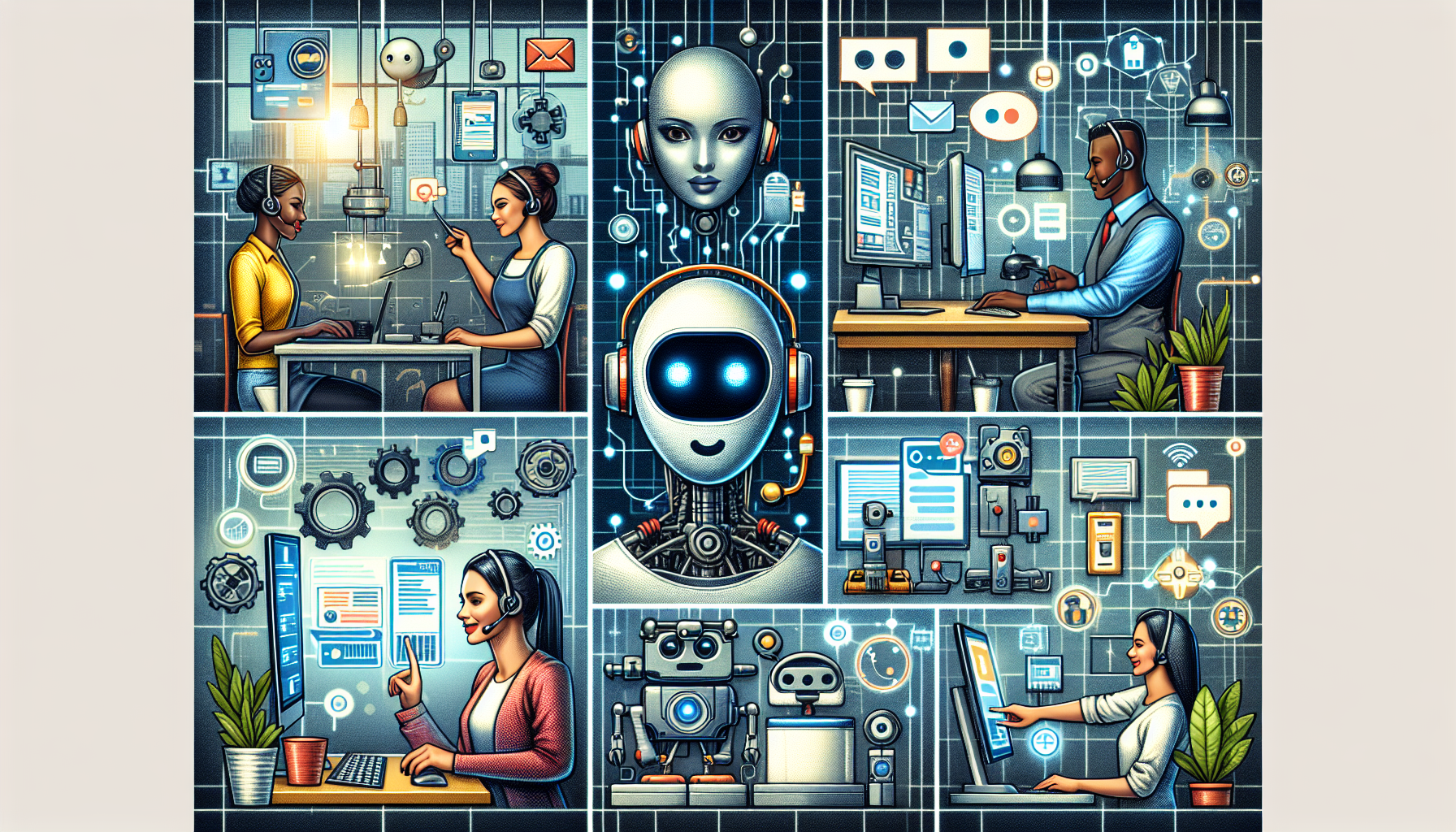Automating Customer Service: Chatbots and Beyond in Various Industries
Introduction to Automation in Customer Service
Automation in customer service has transformed how businesses interact with their customers. With the emergence of sophisticated technologies, especially chatbots powered by artificial intelligence (AI), companies are redefining customer expectations and operational efficiency. This article explores the significance of automation, focusing on chatbots and other innovative technologies across various industries.
Understanding Chatbots and Their Functionality
Chatbots are AI-driven programs designed to simulate human conversation through messaging applications, websites, and mobile apps. They leverage natural language processing (NLP) to interpret user inputs and provide timely, relevant responses. Chatbots are available 24/7, ensuring businesses can cater to customer inquiries anytime, enhancing user experience.
Types of Chatbots
-
Rule-Based Chatbots: These operate on predefined rules and scripts, offering responses based on specific keywords or phrases. They are effective for straightforward queries but are limited in handling complex questions.
-
AI-Powered Chatbots: These utilize machine learning algorithms to understand user intent and context, allowing for more dynamic and fluid conversations. They learn from customer interactions, continually improving their efficiency over time.
Industry Applications of Chatbots
- E-Commerce
In the e-commerce sector, chatbots enhance user experience by consolidating product inquiries, recommending items, and assisting with transactions. For example, brands like H&M and Sephora have integrated chatbots into their platforms, enabling customers to find products quickly. Chatbots also facilitate upselling and cross-selling, increasing average order values.
- Healthcare
In healthcare, chatbots play a critical role in patient interaction, appointment scheduling, and providing medical information. Organizations like Buoy Health deploy chatbots to guide patients through preliminary symptoms and suggest appropriate actions. This not only streamlines the appointment process but also alleviates pressure on healthcare professionals.
- Financial Services
The financial services industry uses chatbots to assist customers with account inquiries, transaction histories, and even fraud detection. Major banks like Bank of America have introduced AI-powered chatbots like Erica, which offer financial advice and prevent unauthorized activities by alerting users instantly.
- Travel and Hospitality
Travel companies utilize chatbots to facilitate booking processes, provide travel itineraries, and answer customer queries regarding destinations. For instance, Expedia employs a chatbot to help users find suitable accommodations and assist with bookings. This automation reduces wait times and enhances the customer journey by providing real-time support.
- Telecommunications
In telecommunications, chatbots help manage customer inquiries about plan details, billing issues, and service outages. Companies such as Vodafone use chatbots to empower customers to troubleshoot common problems independently, which decreases call center volume and improves customer satisfaction.
Beyond Chatbots: Other Automation Technologies for Customer Service
- AI-Powered Virtual Assistants
While chatbots focus on textual or conversational interfaces, AI-powered virtual assistants integrate more advanced functionality, including voice recognition and context-aware responses. Companies like Google and Amazon leverage virtual assistants, such as Google Assistant and Alexa, to further personalize user interactions, enabling customers to manage their queries via voice commands.
- Self-Service Portals
Self-service portals enable customers to access information and solve problems without direct interaction with customer service representatives. By providing FAQs, instructional videos, and troubleshooting guides, companies like Zendesk empower users to find answers independently, which can significantly enhance customer satisfaction.
- CRM Automation
Customer Relationship Management (CRM) systems with automation capabilities help organizations manage customer relationships more effectively. Solutions like Salesforce integrate AI to automate ticketing, follow-ups, and lead scoring, helping customer service teams prioritize crucial tasks and improve response times.
Benefits of Automated Customer Service
- Cost Efficiency
Automating customer service processes significantly reduces operational costs. Companies save on human resource expenses and overheads associated with maintaining large customer support teams.
- Increased Availability
Automation, especially through chatbots, ensures customer queries are answered around the clock, offering instant support without the limitations of human working hours.
- Enhanced Customer Experience
Personalized and timely responses (made possible through data-driven insights) improve overall customer satisfaction. When customers feel valued, their loyalty to a brand increases.
- Scalability
As businesses grow, the volume of customer inquiries typically increases. Automated customer service enables companies to scale their operations without needing to proportionally increase support staff.
Challenges of Implementing Automation
Despite numerous advantages, businesses face challenges when integrating automation in customer service:
-
Quality Control: Ensuring that AI-driven interactions maintain a high level of quality can be challenging. Poorly designed chatbots may frustrate customers rather than serve them.
-
Limitations of Understanding: Rule-based chatbots, in particular, may struggle to understand the nuances of human conversation, leading to misunderstandings.
-
Customer Resistance: Some customers prefer human interactions and may be hesitant to engage with automated systems, especially for complex queries.
-
Data Privacy Concerns: Automation often requires collecting and storing user data, which can raise privacy and security issues that organizations need to address comprehensively.
Conclusion: The Future of Customer Service Automation
The implementation of automation in customer service is set to evolve further as technology advances. Future trends may include deep learning enhancements for more accurate user interactions, augmented reality experiences for product demonstrations, and even more personalized customer journeys based on behavioral analytics. Businesses that remain agile in adopting and innovating around these technologies will likely lead the way in customer service excellence across various industries.
Ultimately, the strategic blend of automation and human touch can result in more streamlined, satisfying customer engagements—propelling both customer satisfaction and brand loyalty to unprecedented levels.


